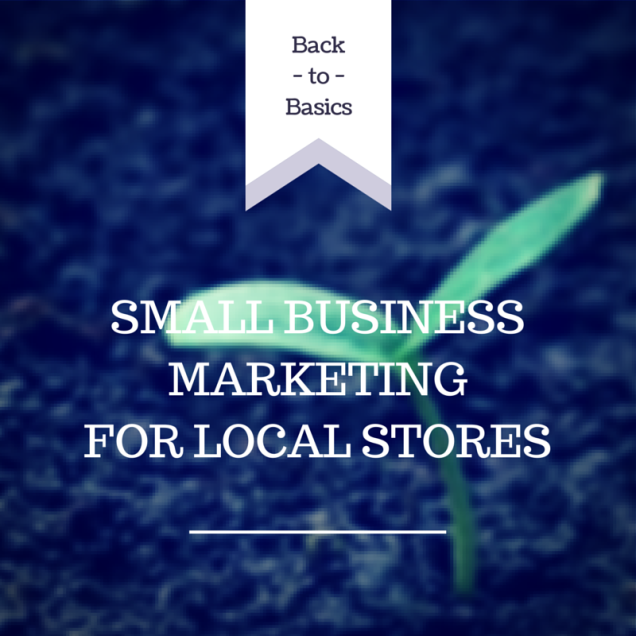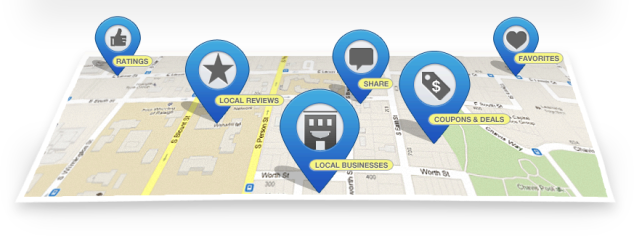
If you’re a small business owner and you’re just a little bit confused on the concept of search engine optimization (otherwise known as SEO), you’re not alone. But there’s no need to feel completely lost–in fact, you might be happy to hear that to make use of SEO tactics, you don’t actually have to be a coder or master of marketing. Surprisingly, it’s pretty easy to learn the basics and implement some of the changes on your own. Below, we detail some of the ways local SEO differs from on-site SEO, and how you can start making local SEO work for your small business.
Local SEO functions differently
When working to get a website ranking, an SEO expert will generally come up with a detailed plan that covers a number of proven SEO tactics: Link building, content creation and syndication, image and on-page optimization, and more. From blogs to ecommerce sites, this works well, and it’s a tried-and-true method of working your way up the search engine result pages (SERPs).
But unlike blogs or ecommerce sites, small business websites generally represent a digital space that provides information about the actual “brick-and-mortar” store. A person who goes to a small business’s website already has a product or service in mind–they’re not mindlessly browsing for “gray pants on sale” or “blogs about healthy baby foods”. No, they’re looking for a plumber in Toiletville, and blogs or toilets for sale aren’t going to help them much.
So this goes to reason that when your company shows up in a local search, it’s because the person who is searching for you wants something locally–they’re not interested in what some blog has to say about plumbing or what Wikipedia has to say about it, either. They just want to find a plumber.
So that’s why it’s important that you focus on local SEO for your small business. It’s just not the same as trying to get an online store or blog ranking. Local SEO is its own animal.
Smart local searches will display pertinent information for your customers.
Because your local business is an actual storefront, people who are searching for you won’t just want to find your website. They’ll also want to know your business hours, how to get in contact with you, and they might even want to learn what others think about your products and services. You may have noticed that when you conduct a search for a local service, a map will display showing nearby businesses. You can then click to get information about the business, such as the business name, address, and phone number (NAP).
To get these important points of data to display properly in searches, you’re going to want to submit your business information to directories. There are a lot of online business directories, whether you’re aware of it or not: The Yellow Pages, Yelp, Merchant Circle, Google Business Places, Bing Places for Business, and more. For more information on specific directories, VR Marketing Blog has put together a helpful list of the top 20 places your local business should be listed.
Basically you’ll want to make sure that all of these listings display a correct form of your NAP. If there are duplicate listings on any directories, claim them and fix them to avoid the search engines thinking there are two locations/phone numbers/names for your business. If you find that there are inconsistencies in addresses or contact information, make sure you correct it. The search engines will pull up data based on what’s listed in directories–and you want your information to be correct so that your customers can easily find you.
The takeaway? Local SEO directories will help customers find you when conducting local searches, so you’d better make sure you’re listed in as many of them as possible.
Local reviews help you out in more ways than one.
An integral part of your local SEO campaign will be collecting business reviews. Google wants to display only the most important results to people who are searching for local businesses–so naturally, it will show those with more positive reviews first. Think of it as “social proof” that you’ve got what the people are looking for.
Of course, reviews don’t just help you show up on local searches. They’re also a great way to advertise your business on Facebook or other social media platforms. Entice your fans and followers with a coupon or special offer if they leave you a review. Sometimes, people just need a little push in the right direction before they get involved.
What you need to know: Local reviews are worth their weight in gold for your small business. The more reviews, the better you’ll appear to prospective customers, and the higher you’ll rank on the SERPs.
Connect with other local businesses for the best networking opportunities.
Local businesses are unique in that they get to establish roots in a community. Sure, there are competitors. And sure, you’ve probably never felt like promoting them before.
But if you connect with other local businesses, you create a wonderful networking opportunity for yourself. You can link to one another online, building your link portfolio to boost your presence on Google. You can run promotions and drive business that way. You could arrange interviews or work together to promote a cause and draw attention to your services. Gone are the days of trash-talking your competitors. Now it’s the age of co-promotion, and local businesses can really shine in this area–if you know how to play your cards right.
So what should you do? Figure out who the big names are in your area. Connect with successful businesses and find a way to form a positive relationship. Support one another online and watch your traffic grow.
Internet Local Listings is an internet advertising company in Santa Ana, CA, serving clients across the country with the best website marketing services available in the industry. Visit us here for more information, or give us a call at (888) 770-3950 to discover how we can help you be seen online.










